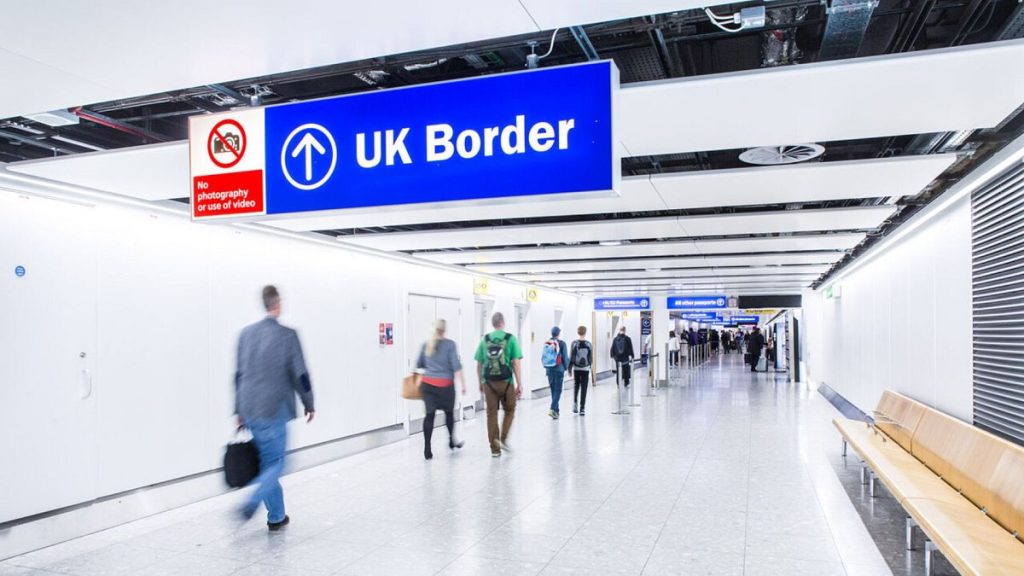The UK’s newly implemented Electronic Travel Authorisation (ETA), a requirement for many international visitors since January 2024, is set to become more expensive. The Home Office has proposed a 60% price increase, raising the fee from £10 to £16. While this change is purportedly aimed at reducing the financial burden on taxpayers and is projected to generate £269 million annually, it has sparked widespread concern and criticism within the travel industry. Although the proposed increase is subject to parliamentary approval, its potential impact on UK tourism and the broader economy has ignited debate.
The travel industry has reacted strongly to the proposed price hike, expressing bewilderment and disappointment at the timing and scale of the increase. Major industry bodies like the International Air Transport Association (IATA) and AirlinesUK have voiced concerns about the potential damage to the UK’s tourism competitiveness. They argue that such a substantial increase in travel costs, especially so soon after the ETA’s introduction, could deter potential visitors and hinder the UK’s ambitious goal of boosting tourism by 30% and achieving 50 million arrivals by 2030. The industry’s apprehension stems from the cumulative effect of rising travel costs, including the ETA increase, increased Air Passenger Duty, and the existing 20% VAT on hospitality, making the UK a less attractive destination compared to its European counterparts.
While the proposed price increase for ETAs has drawn criticism, the government’s decision to exempt transit passengers from the fee has been welcomed by the industry. This means that passengers connecting to other flights without passing through immigration will no longer require an ETA, addressing concerns raised by major airports like Heathrow about potential passenger loss. This exemption, however, applies only to genuine connecting flights and not to those who need to clear immigration and check in again for onward travel. While the government has reversed its initial stance on charging transit passengers, it maintains the right to reinstate the fee if necessary, monitoring the situation closely for potential security implications.
The escalating cost of visiting the UK has raised concerns about the potential threat to the nation’s tourism sector. Industry leaders argue that the assumption of continued visitor interest despite rising prices is misplaced, emphasizing the crucial role of value for money and a welcoming environment in attracting international tourists. Comparisons with the European ETIAS system, set to launch later this year, highlight the UK’s comparative disadvantage. The ETIAS offers access to 29 Schengen countries for a lower fee (€7) with a longer validity period (three years), further exacerbating concerns about the UK’s competitiveness. Additionally, factors like the abolition of tax-free shopping for international visitors, the 20% VAT on hospitality, and potential local tourist taxes add to the financial burden, making the UK a less appealing option compared to other European destinations with lower VAT rates on hospitality.
The combined impact of rising travel costs, including the proposed ETA increase, the already high Air Passenger Duty, and potential future increases, poses a significant challenge to the UK’s travel and tourism sector. Industry experts warn that these cumulative increases could stifle growth in a sector projected for strong expansion. Tourism currently constitutes the UK’s fifth largest export sector, outperforming the wider economy, making the potential negative impacts of increased travel costs a serious concern. The industry calls for policies that promote growth and competitiveness rather than deterring international visitors through escalating fees.
The debate surrounding the UK’s ETA system exemplifies the tension between generating revenue and fostering a thriving tourism sector. The government’s justification for the price hike centers on reducing reliance on taxpayer funding and contributing to the national budget. However, the travel industry argues that this short-term financial gain could be offset by long-term damage to the tourism sector, a significant contributor to the UK economy. The proposed ETA increase, coupled with other rising travel costs, risks making the UK a less appealing destination for international visitors, potentially hindering the country’s tourism growth ambitions and broader economic prospects. The ultimate impact of the ETA price hike on the UK’s tourism landscape remains to be seen, pending parliamentary approval and ongoing dialogue between the government and the travel industry.














